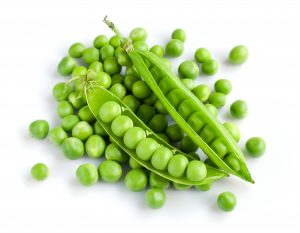5 Vegetables to Avoid for Weight Loss
Table of Contents
Can there really be vegetables to avoid? Surely, vegetables are natural, and natural foods are healthy aren’t they?
So it seems obvious that if I eat lots of vegetables, it will help me be healthier and help we lose weight!
Well unfortunately, not all vegetables are created equal.
They are all healthy, but they do provide different health benefits, and you need to understand a little about that.
Most people, when they start on your journey to lose weight stock up on healthy fruit and vegetables.
But some vegetables can actually ruin the effort you are putting into your weight loss journey.
So What Are The Vegetables To Avoid?
It’s actually quite simple.
You should try to avoid starchy vegetables.
These are high in carbohydrates and can be a rich energy source, so if you’re in training, they can be great.
However, eating these vegetables in large quantities can lead to weight gain.
If the stored energy is not used up through exercise or other activity, then
that energy will be converted into fat.
Of course, starchy vegetables aren’t bad foods.
They are filling, nutritious and healthy when they are consumed in the right amounts.
So let’s look at five starchy vegetables that, while they are healthy, they also contain high amounts of carbohydrates.
Let Start with Portion Sizes
The recommended serving size for each vegetables in a meal is half a cup.
Half a cup is about the size of a cupped palm!
A full cup is about the same size as a fist.
Starchy Vegetables To Be Careful With
Vegetables to Avoid 1: Green Peas:
One cup of raw green peas is about 30 grams of carbohydrates.
This is one fifth or 20% of your carbohydrate intake if you are consuming 150 grams per day.
However if you are on a lower carbohydrate diet (say 100 grams per day), ir almost one third or 30% of your daily allowance
Vegetables to Avoid 2: Parsnips:
A cup of boiled, drained parsnips, served with salt is about 26 grams of carbohydrates.
This is around one sixth or 17% of your daily intake (or more than a quarter (26%) if you are on a low carbohydrate diet.
Of course, parsnips are often roasted, which obviously also adds to you fat and sugar intake!
Vegetables to Avoid 3: Yams:
A cup of cubed yams boiled and drained without salt, or baked without salt is 37g of carbohydrates.
This is equivalent to a quarter (25%) of your daily intake, or more than a third (37%) if you are on a low carbohydrate diet.c
Vegetables to Avoid 4: Corn:
A cup of corn boiled and drained without salt contains 41 grams of carbohydrates.
This is 27% of your daily intake intake or 41% if you are on a low carbohydrate diet.
Vegetables to Avoid 5: Black Beans:
These beans are often considered to be one of the world’s healthiest foods, so of course, you would choose them if you are trying to lose weight.
However, a cup of black beans, boiled, drained and without salt contains 41 grams of carbohydrates which is the same amount found in corn.
Think Ratio Of Carbs To Portion Size
1 cup of each of peas, parsnips, yams, corn and black beans contains 175 grams of carbohydrate.
That’s more than your daily allowance, and that’s before we take into account any o fthe foods we normally think of as high carb, such as rice, pasta, potato, bread and so on.
In fact, if your’re on a low carb diet as many people who are trying to lose weight are, just half a cup of each is almost 90% of your daily allowancy,
The average person trying to lose weight should be consuming 100-150 grams of carbohydrates per day, so these vegetables really are a problem.
And remember, almost everything we eat has at least some carbohydrates, so our intake can increase really fast.
Carbohydrates are an important part of your diet.
They give you energy.
BUT…
they can easily be converted into fat and undo your weight loss efforts.
So next time you stock up your fridge with fruits and vegetables, reach for those that are low in starch and carbohydrates.
Related Articles:
Foods to Boost Your Immune System


